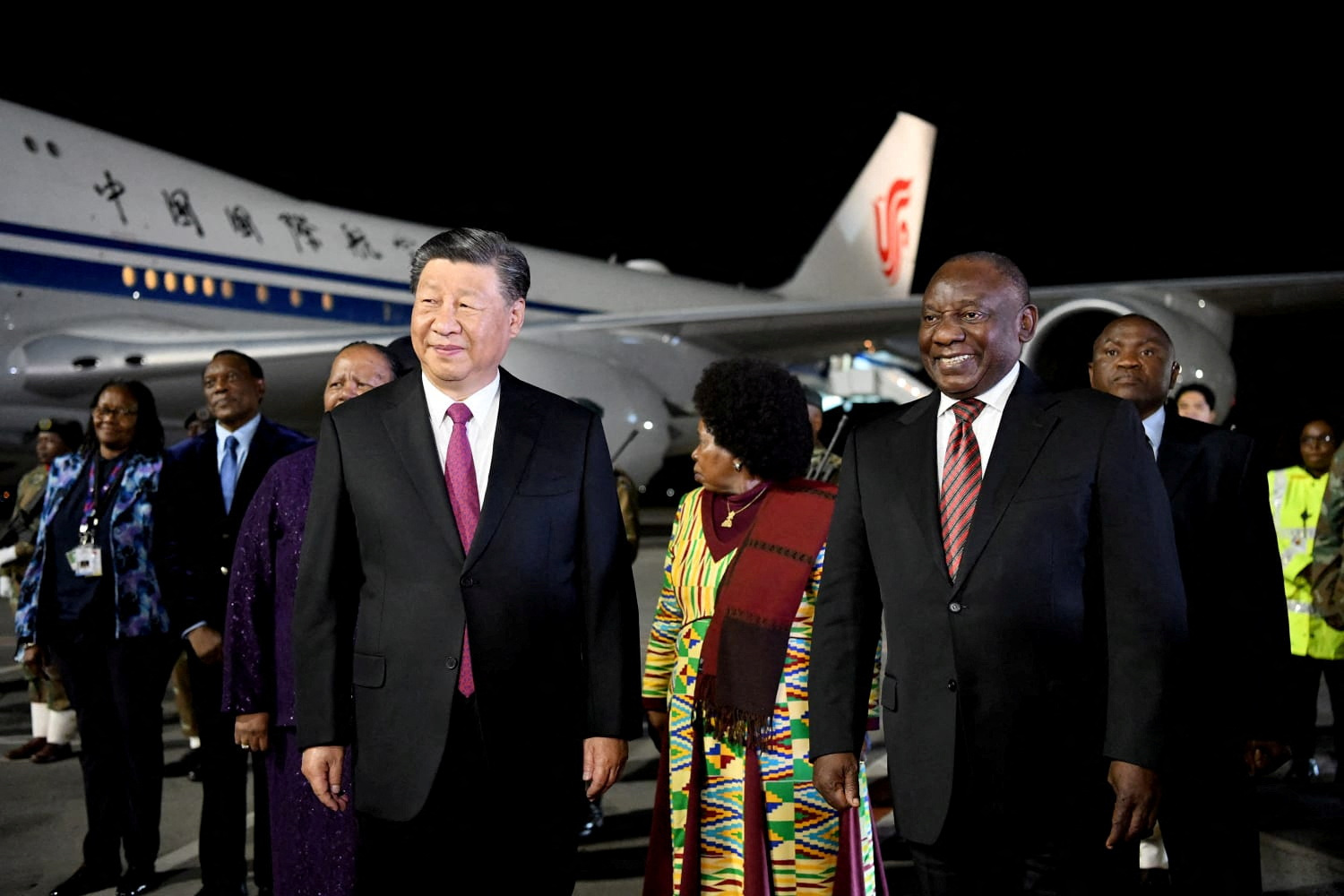By Bhargav Acharya

JOHANNESBURG – Leaders of the BRICS nations – Brazil, Russia, India, China and South Africa – converged in Johannesburg on Tuesday for a summit where they will weigh expanding the bloc as some members push to forge it into a counterweight to the West.
Heightened global tensions provoked by the Ukraine war and a growing rivalry between China and the United States have added urgency to a drive to strengthen the bloc, which has at times suffered from internal divisions and a lack of coherent vision. South Africa hosted China’s Xi Jinping, the leading proponent of enlarging BRICS, for a state visit on Tuesday morning ahead of meetings with the grouping’s other leaders later in the day.
Sitting beside Xi, South African President Cyril Ramaphosa said that the two countries had “similar views” regarding expansion.
“We share your view, President Xi that BRICS is a vitally important forum which plays an important role in the reform of global governance and the promotion of multilateralism and cooperation throughout the world,” he said.
ALSO READ: South Africa says Putin to stay away from BRICS Summit
Brazil’s Luiz Inacio Lula da Silva and Indian Prime Minister Narendra Modi are also attending the Aug. 22 to 24 summit. Russian President Vladimir Putin wanted under an international arrest warrant for alleged war crimes in Ukraine, will not travel to South Africa and instead join virtually.
“I am confident that the upcoming summit will be an important milestone in the development of the BRICS mechanism,” Xi said shortly after his arrival in South Africa.
Beyond the enlargement question, boosting the use of member states’ local currencies is also on the summit agenda. South African organisers, however, say there will be no discussions of a BRICS currency, an idea floated by Brazil earlier this year as an alternative to dollar dependence.
POINT OF CONTENTION

BRICS remains a disparate group, ranging from China, the world’s second-biggest economy now grappling with a slowdown, to South Africa, this year’s host and an economic minnow facing a power crisis that’s led to daily blackouts. India has increasingly reached out to the West, as has Brazil under its new leader, while Russia is being hammered by Western sanctions over its war in Ukraine.
Two members – India and China – have periodically clashed along their disputed border, adding to the challenge of decision-making in a group that relies on consensus. The expansion has long been a goal of China, which hopes that broader membership will lend clout to a grouping already home to some 40% of the world’s population and a quarter of global GDP.
The leaders will hold a mini-retreat and dinner on Tuesday evening where they are likely to discuss a framework and criteria for admitting new countries. But expansion has become a point of contention. Russia is keen to bring in new members to counter its diplomatic isolation over its invasion of Ukraine.
ALSO READ: BRICS currency not on August summit agenda – South African official
India, which is wary of Chinese dominance and has warned against rushing expansion, has “positive intent and an open mind”, Foreign Secretary Vinay Kwatra said on Monday. Brazil, meanwhile, is concerned that expanding BRICS will dilute its influence.
While a potential BRICS enlargement remains up in the air, the bloc’s pledge to become a champion of the developing “Global South” and offer an alternative to a world order dominated by wealthy Western nations is already finding resonance.
Over 40 countries have expressed interest in joining BRICS, say South African officials. Of them, nearly two dozen have formally asked to be admitted, with some expected to send delegations to Johannesburg.


